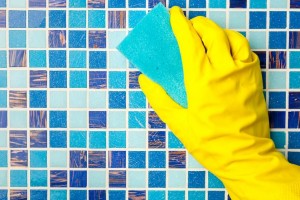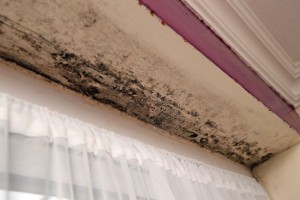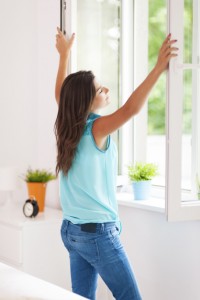Your newborn has just arrived in your home and you want everything to be perfect. Probably, one of the things that you worry about is germs. Have in mind, that not all germs can hurt your baby, but there are some of them, which can be really harmful.
When we talk about germs and babies you also need to know how to protect a newborn from mould in your home.
1. Forming of mould.
Regular cleaning should be efficient enough to protect a newborn from mould and mildew, but sometimes there are specific conditions for mould to occur. If you have it in your home, you have to know that it is a very persistent substance and can be dangerous for your child. Reasons that may cause mould formation are:
 limited ventilation or lack of air motion;
limited ventilation or lack of air motion;- high level of humidity in the room (over 70 %);
- presence of organic materials such as wallpapers, dust, wood, food, etc.;
- a low temperature of the wall (if the mould has occurred on a wall).
Usually, adults react in a different way when they are exposed to mould. Some of them may live normally in a home with the presence of moisture and mould for years. Others will feel discomfort immediately. Babies and little children, on the other hand, should not live in such areas, because, that can affect their health. Actually, it is not the mould that we see, which is dangerous. It releases many microscopic and toxic spores in the air that we breathe. They are the real danger and are called mycotoxins.
2. Problems for your baby health, caused by mould.
Mycotoxins can cause an allergic reaction to your baby with the following symptoms:
Your newborn still has a weak immune system and if he or she is near mould or mildew, breathing problems may occur: You can observe signs like:
- cough;
- fever;
- night sweats;
- difficulty to breathe, etc.
3. Things that you need to know to protect a newborn from mould.
To avoid all these worries you should not allow the mould to form in your home. You have to:
- keep a normal temperature for the room space according to the season;

- observe humidity level ( it is recommended that indoor humidity should be between 30 and 60 per cent);
- check all ventilation systems and use fans (you should open your windows every day at least for an hour to leave some fresh air inside and also to make a natural motion of the air);
- fix all leaks in your home;
- use a dehumidifier to limit moisture and condensation;
- keep your baby away from mould surfaces (bacteria that form in moist areas may affect some items that your baby can touch or swallow such as teething toys or food).
- wash and dry your floors regularly;
- leave your carpets and curtains well-dried after washing, because they keep or absorb moisture very easily;
- clean your bathroom regularly with special cleaners for mould.
I f mould has already formed in your home, you need to get rid of it right away. Your baby should not be close by when you clean because you will use harsh cleaning products. Do not forget to put protective gloves when cleaning mould and mildew. You can use a mixture of bleach and water or buy special mould-killing cleaners. After spraying the affected surface, leave it for 20 to 30 minutes. Rinse thoroughly and then dry very well with a cloth.
f mould has already formed in your home, you need to get rid of it right away. Your baby should not be close by when you clean because you will use harsh cleaning products. Do not forget to put protective gloves when cleaning mould and mildew. You can use a mixture of bleach and water or buy special mould-killing cleaners. After spraying the affected surface, leave it for 20 to 30 minutes. Rinse thoroughly and then dry very well with a cloth.
To protect a newborn from germs formed by mould and mildew, you need to prevent any chances for this persistent substance to occur again in your home. If you prefer to do it professionally and to save many efforts, call a cleaning company. As to you, enjoy the precious moments with your baby!
We provide high-quality cleaning service at an affordable price. Our experienced team of professionals prides themselves in maintaining the highest standards.
When you move out from a rented property, there are a number of things which must be planned and organized. This includes the end of tenancy cleaning, which a large number of landlords are now insisting be done by a professional cleaning company. Our end of tenancy cleaning services are designed to help take the pressure off you and ensure that you are 100% satisfied with the outcome.





